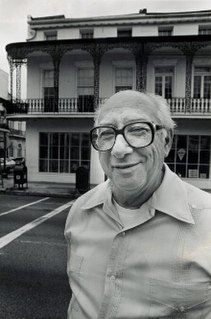A Quote by Isabel Wilkerson
What I love about the stories of the Great Migration is that this is not ancient history; this is living history. Most people of color can find someone in their own family who had experienced a migration of some kind, knowing the sense of dislocation, longing and fortitude.
Related Quotes
At the beginning of the 20th century, before the migration began, 90 percent of all African-Americans were living in the South. By the end of the Great Migration, nearly half of them were living outside the South in the great cities of the North and West. So when this migration began, you had a really small number of people who were living in the North and they were surviving as porters or domestics or preachers - some had risen to levels of professional jobs - but they were, in some ways, protected because they were so small.
If one is going to offer children stories that underneath the story must be something that will inform, stimulate and guide, I love to be on board. I think anything that resonates with history, as does The Jungle Book and Watership Down, reflects patterns of behavior, power struggles, deprivation, migration, survival, joy, love, betrayal, and all of these things. It's tragic that children are encouraged to ignore history. We ignore history and any literature that is historically based in history. Even though both of those films involved animals, of course they reflect human behavior.
I love telling stories. I think of myself as a storyteller, and I don't feel bound by being just a singer or an actress. First, I'm a storyteller, and history is stories - the most compelling stories. There is a lot you can find out about yourself through knowing about history. I have always been attracted to things that are old. I have just always found such things interesting and compelling.
I think a lot about race and the burdens of representation. There's an idea that because I'm writing a book set around the time of the Great Migration, and happen to be black, I'm trying to write a definitive account of the Great Migration, the so-called "black experience." That's not what I'm doing, and it can be frustrating.
Longing is the fullest sense of desire; it's the most deeply felt kind of desire. I think the most interesting artwork comes out of some sense of longing. It could be called dissatisfaction; it could be called distance. There are many kinds of wanting to get closer to something else, whether that is an idea, a body, a place. Longing is also one of the conditions people approach reading, visual art, or music with - it's to satisfy that sense of longing. It's part of my job, on some level, to grapple with that notion.
I love art, and I love history, but it is living art and living history that I love. It is in the interest of living art and living history that I oppose so-called restoration. What history can there be in a building bedaubed with ornament, which cannot at the best be anything but a hopeless and lifeless imitation of the hope and vigor of the earlier world?






























